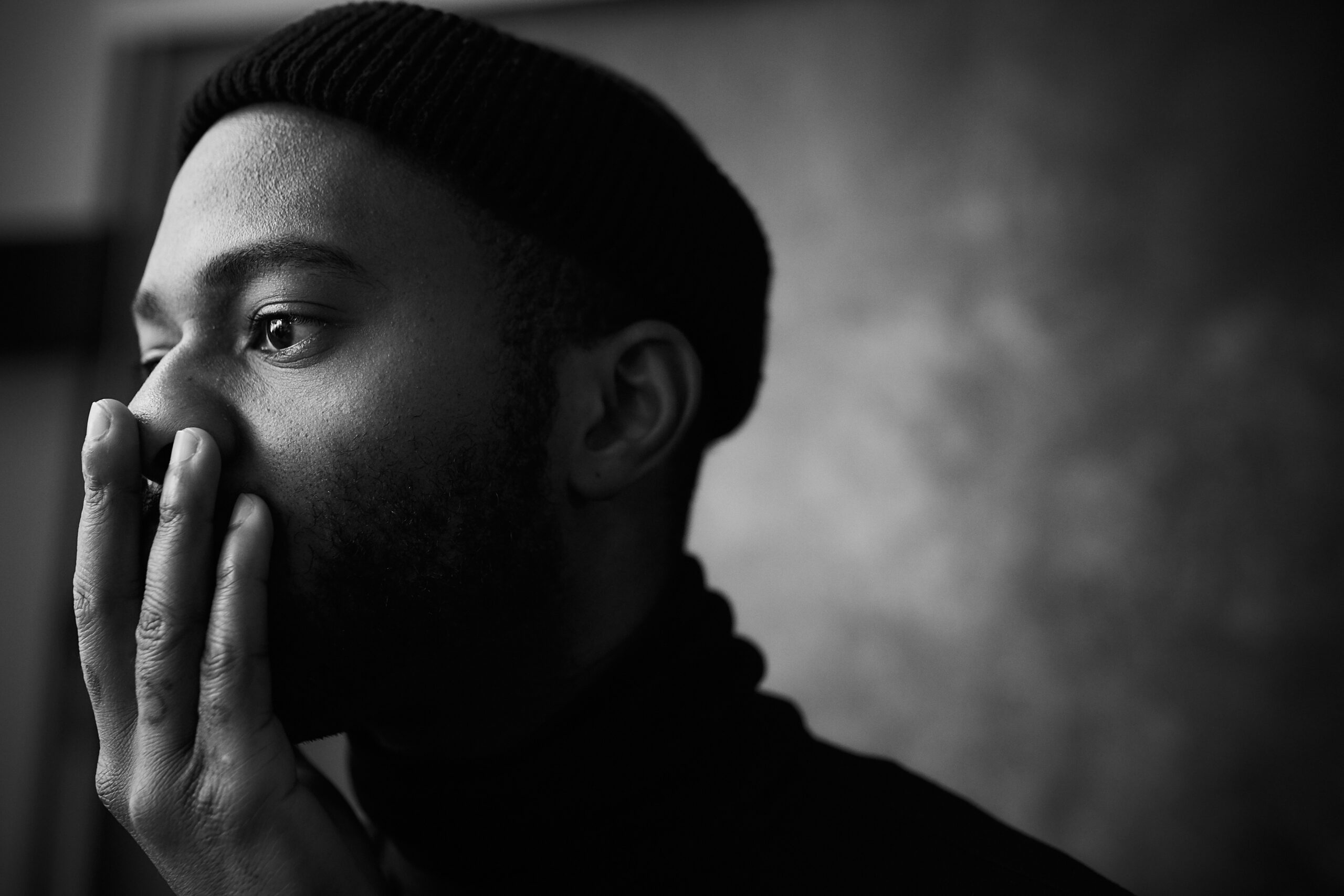Dealing with ‘What If’ Thinking: Strategies to Cope with Anxiety
September 17, 2024
Anxiety often shows up as something called ‘What If’ thinking. If you’re reading this, I probably don’t need to tell you that, right? This is when your mind gets stuck in a loop of imagining all sorts of hypothetical situations that can leave you feeling overwhelmed and stuck. I know, not very helpful.
These intrusive thoughts usually start with “What if” and (quickly) spiral into worst-case scenarios. But the good news is, understanding and managing this kind of thinking is super important for reducing anxiety and getting back some control. So today, let’s dive into what ‘What If’ thinking is, how it ties into anxiety and practical ways to handle it.
By the way, if we haven’t met yet, welcome to my corner of the internet! I’m Jenna, and I’ve been working with people who are struggling with OCD and anxiety for over 15 years now (and have been dealing with it myself since I was a kid!). If you’re ready to take back your life, make sure to tune into weekly episodes of my podcast All The Hard Things, or jump into my OCD and Anxiety Recovery Blueprint here for a complete step-by-step for taking your life back with evidence-based strategies I have seen work time and time again.
What is ‘What If’ Thinking?
Let’s back up a second. ‘What If’ thinking is when you constantly imagine potential negative outcomes of future events. It’s a big part of anxiety, making your mind focus on uncertainties and hypothetical dangers.
For example, you might think, “What if I fail this test?” or “What if something bad happens to my loved ones?” These thoughts, while normal, can trigger a wave of anxiety, making it hard to focus on the present or get anything done.

Recognize Your ‘What If’ Thoughts
The first step in dealing with ‘What If’ thinking is to notice when it’s happening. It sounds almost too simple, but pay attention to your thought patterns and try to pay attention if you’re starting to spiral into hypothetical scenarios. Awareness is key to breaking the cycle of anxiety. When you catch yourself thinking “What if,” gently acknowledge the thought without judgment. For example, you might say to yourself, “I notice I’m having a ‘What If’ thought right now.”
Challenge Your ‘What If’ Thoughts
Once you’ve recognized a ‘What If’ thought, the next step is to challenge it. Ask yourself if the thought is based on any real evidence or if it’s just an exaggerated worry. Often, ‘What If’ thoughts are not grounded in reality. Think about how likely the scenario is to actually happen. You can also ask yourself, “What would I say to a friend who had this thought?”. That’s one of my personal favorite things to do. I think of my son, Eli, and think about what I would tell him if he was feeling that way. By looking at your ‘What If’ thoughts more closely, you can reduce their power over you.
Practice Mindfulness
I’m not just talking about sitting in a room and meditating. Mindfulness is all about paying attention to the present moment without judgment. It can be a powerful tool for managing ‘What If’ thinking. When you practice mindfulness, you train your mind to focus on the here and now, rather than getting lost in future scenarios.
Try mindfulness techniques like deep breathing, body scans, or mindful walking. These practices can help keep you grounded and lessen the intensity of anxious thoughts.
Focus on the Present Moment
Besides mindfulness, actively focusing on the present moment can help break up ‘What If’ thinking. Engage in activities that require your full attention, like reading, cooking, or spending time with loved ones. When your mind starts to wander into ‘What If’ territory, gently bring your focus back to what you’re doing right now. This not only reduces anxiety but also makes your life more enjoyable by letting you fully experience each moment.
Develop Problem-Solving Skills
One way to counteract ‘What If’ thinking is to get good at problem-solving. Instead of getting stuck in hypothetical scenarios, take proactive steps to address potential issues. Identify specific problems that you can control and come up with practical solutions.
Let me give you an example. If you’re worried about a work project, break it down into manageable tasks and create a plan. This is so much better than getting stuck in thinking “what if” and not actually doing anything about the worry. By focusing on what you can do, you shift your energy from anxiety to productivity.
Limit Time Spent on ‘What If’ Thoughts
I know, easier said than done, but around here? We aren’t afraid to do the hard things.
While it’s important to acknowledge your ‘What If’ thoughts, it’s also important to limit how much time you spend on them. If it helps, try setting aside a specific time each day to address your worries. You can even call it “worry time.” During this period, allow yourself to think about your ‘What If’ scenarios, but once the time is up, move on to other activities.
This technique can help keep your anxiety in check and prevent it from taking over your day.

Seeking Structured Guidance and Support
Lastly, if you’re struggling with ‘What If’ thinking and anxiety, you might benefit from structured guidance and support. Consider taking my OCD and Anxiety Recovery Blueprint, where I go through evidence-backed strategies and support for treating anxiety and OCD. This comprehensive course provides practical tools and techniques to help you manage your thoughts and reduce anxiety. It’s a legit game-changer. You can find more information and sign up at this link.
Moving Beyond “What If” Thoughts
Managing ‘What If’ thinking involves a mix of awareness, challenging negative thoughts, mindfulness, and practical problem-solving. By recognizing when you’re engaging in ‘What If’ thinking and using these strategies, you can reduce the hold anxiety has on your life. Remember, it’s a process, and progress takes time. Be patient with yourself and celebrate small victories along the way.
Staying grounded through mindfulness and focusing on the present can help, while developing problem-solving skills and limiting time spent on ‘What If’ thoughts can empower you to take control of your anxiety. And if you need more structured support, my OCD and Anxiety Recovery Blueprint is here to guide you.
You don’t have to go through this journey alone. By using these strategies and finding the right resources, you can overcome ‘What If’ thinking and lead a more peaceful, fulfilling life. You are capable, strong, and deserving of a life free from the constraints of anxiety. You are badass!
most popular episodes
Love my podcast?
Episode 112: Postpartum OCD and False Memory OCD
Imagine how in depth I can go in an online course. Instantly downloadable and game-changing. Take the next step towards an amazing life.